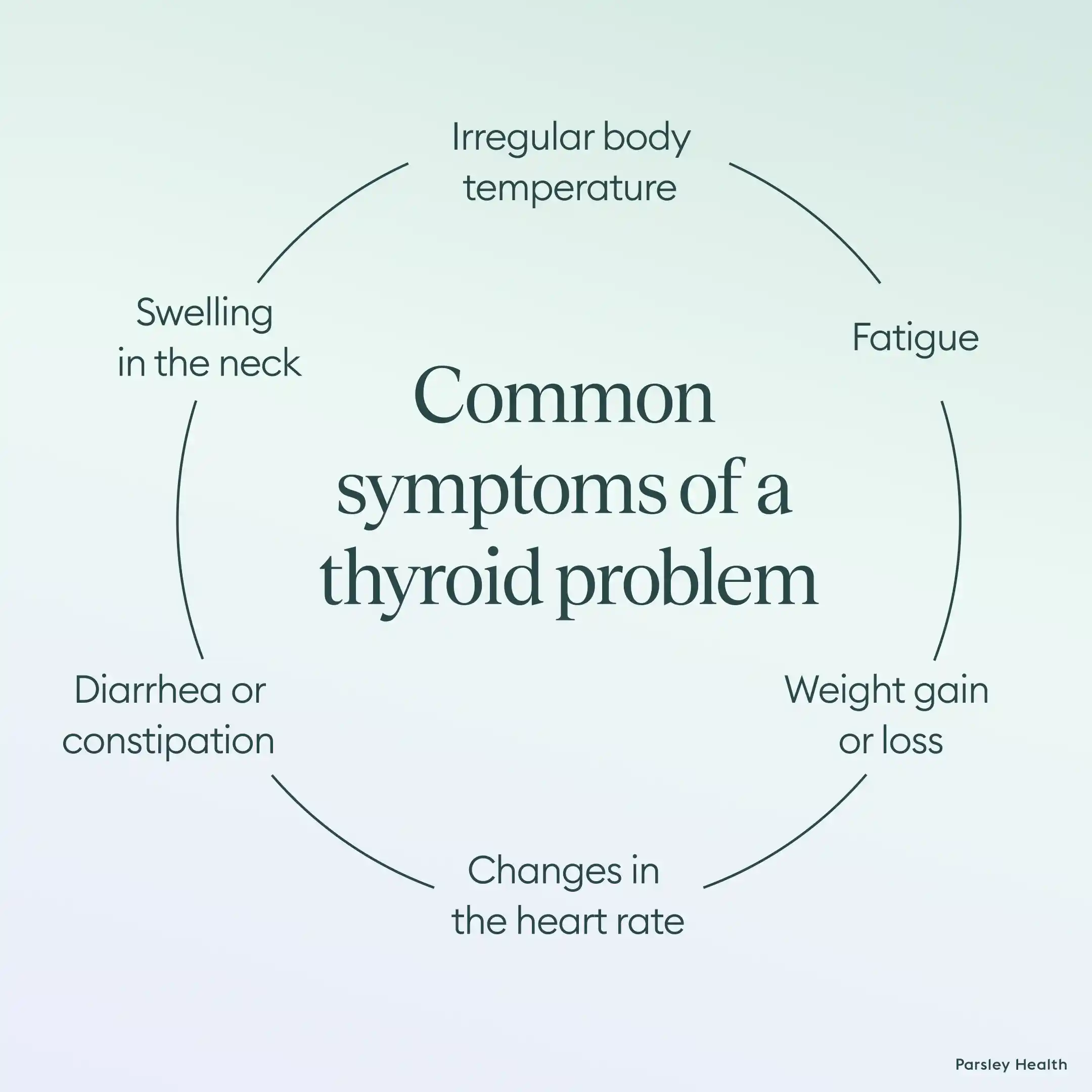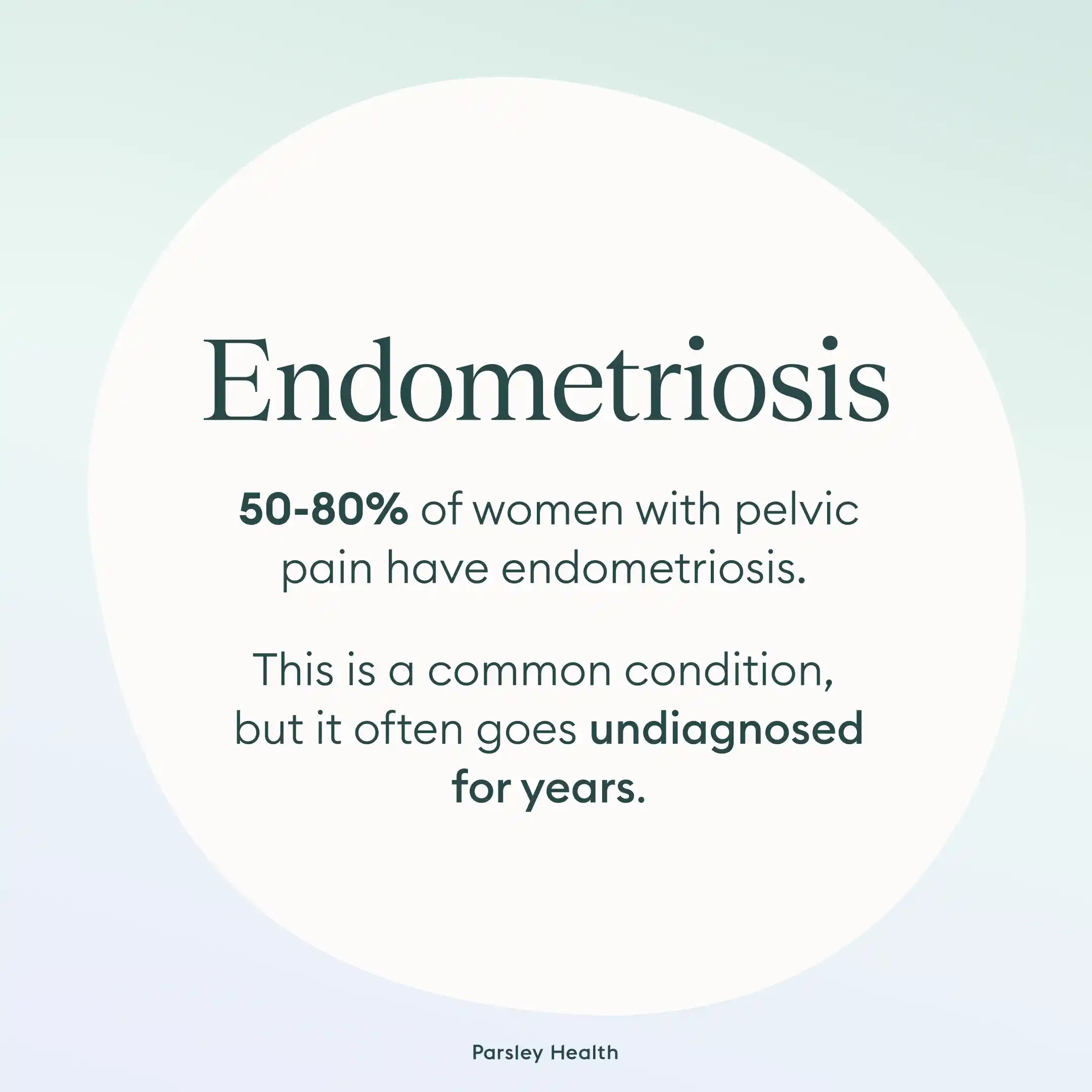If you rate your general energy level on a scale of one to 10, what would it be? If it’s below a five, you may be asking yourself, “Why am I tired all the time?”
This is a common question among folks assigned female at birth. Those assigned female have a higher prevalence of both general fatigue and chronic fatigue when compared to those assigned male.
Here, we’ll explore the common causes of fatigue for those assigned female, and what you can do to start feeling better.
Understanding fatigue in women
In a 2023 research review looking at more than 90 studies including more than 600,000 participants, researchers found that more than 18 percent of people assigned female experience some type of fatigue.
The occasional bout of fatigue is normal. We’ve all had the experience of feeling drained after a long day or week, for example. But if you’re experiencing ongoing fatigue or seem to experience it often, you might need to get to the root cause.
“Fatigue, whether it’s mental, physical, or both, affects all aspects of life. It typically is a sign that something is going on that should be addressed,” says Dr. Anne Hussain, a licensed naturopathic doctor, and the author of “The Period Literacy Handbook.”
Many factors can cause fatigue or a feeling of heaviness, including underlying medical conditions, hormonal imbalances or shifts, nutritional deficiencies, mental health concerns, lifestyle habits, and more.
Medical conditions and fatigue
Several underlying medical conditions are a culprit of fatigue. However, just because you experience fatigue doesn’t necessarily mean you have one of these conditions.
“A doctor helps identify the exact cause so you can get the right treatment,” says Shelby Harris, Psy.D., director of sleep health at Sleepopolis and a licensed clinical psychologist specializing in behavioral sleep medicine. “Without this, you might only address the symptom, not the real issue.”
Here are some conditions that are associated with fatigue.
Chronic fatigue syndrome
Myalgic encephalomyelitis/chronic fatigue syndrome (ME/CFS) is a serious illness that causes intense fatigue and makes everyday life difficult because of brain fog, physical exhaustion, and more.
The condition affects an estimated 3.3 million people in the United States. But it often goes underdiagnosed. If you are having intense fatigue that is preventing you from living your life, talk to a provider who will take your symptoms seriously.
Root-cause medicine providers often find that their patients who are experiencing ME/CFS symptoms are recovering from a viral infection, including the virus that causes COVID-19 or the Epstein Barr virus (EBV).
Thyroid disease
More people assigned female at birth have thyroid disease when compared to those assigned male.
“Thyroid is a big one that not a lot of people talk about or look at on a deeper level,” says Gabby Pavelko, a doctor of acupuncture and Chinese medicine and the chief of staff at Rootless, a seaweed-based supplement that supports hormonal health.
Types of thyroid disease:
- Underactive thyroid (hypothyroidism): your thyroid gland doesn’t produce enough thyroid hormone.
- Overactive thyroid (hyperthyroidism): Your thyroid produces too much thyroid hormone.

Fatigue is a common symptom of both hypothyroidism and hyperthyroidism. However, you may not notice fatigue right away until the condition progresses. Or you may, at first, chalk up fatigue to something else, like stress.
A provider can evaluate you for thyroid function with a simple blood test and then work with you to formulate a plan for supporting this important gland if needed.
Heart disease
Fatigue can show up if someone has a condition affecting the cardiovascular system. Fatigue is a common symptom in those with congestive heart failure, coronary heart disease, and heart rhythm disorders, including atrial fibrillation.
Heart disease is understudied, under-recognized, underdiagnosed, and undertreated in people assigned female at birth. One issue is that heart disease can present different symptoms in female and male bodies. Extreme fatigue in people assigned female at birth who are in middle age should receive a complete evaluation by a cardiologist.
Heart disease is the leading cause of death for adults. However, more people assigned female at birth die from heart disease each year.
The hormone estrogen provides some protection from heart disease, but, in most cases, going through the menopause transition increases one’s risk for heart disease. If you’re experiencing fatigue, don’t ignore the issue. Talk to your provider for an evaluation.
Sleep disorders
Sleep disorders include sleep apnea, insomnia, and restless leg syndrome, just to name a few. Understandably, regularly not getting enough sleep or enough quality sleep can leave you feeling fatigued.
If you’re experiencing trouble sleeping, next-day grogginess, or new onset of snoring, be sure to get evaluated. If left untreated, sleep apnea can lead to serious chronic health issues, including cardiovascular disease. Up to 15 percent of those assigned female at birth have a form of the condition, which is characterized by snoring, gasping for air during sleep, and more.
Hormonal imbalances (or fluctuations) and fatigue
Hormonal imbalances from certain conditions or changes in hormone levels during the menstrual cycle or the menopause transition can also contribute to fatigue.
You’re about to get your period
Your body and mind may naturally feel a bit more fatigued, depending on where you are in your menstrual cycle.
“Sex hormone changes, especially in the late luteal phase of the menstrual cycle before a period starts, may also lead to fatigue,” Dr. Hussain says.
During your luteal phase, you may feel like you have less strength or worsened athletic performance when compared to the follicular phase, which is the first half of your menstrual cycle.
In the luteal phase, your progesterone levels take a bit of a roller-coaster ride, and that fluctuation may be linked to an increase in fatigue. Progesterone can cause you to temporarily be more insulin resistant, which is also linked to fatigue. This is because when insulin resistance is present, your body will have more difficulty converting food to energy.
Premenstrual syndrome (PMS), which typically occurs about five days before your period can cause mood changes, fatigue, and cravings. Premenstrual dysphoric disorder (PMDD) is a more severe form of PMS and is highly linked to insomnia and fatigue, especially in the luteal phase.
While some fatigue is normal as a PMS symptom, intense fatigue may be a sign that something else is going on. Talk to a provider if this is the case for you or if you have unexplained fatigue that occurs off and on throughout your cycle.
Polycystic ovary syndrome (PCOS)
Compared to people without the condition, those with polycystic ovary syndrome (PCOS) are more likely to report fatigue. Fatigue may result from several factors. For example, people with PCOS are more likely to have poor sleep quality and sleep disorders, particularly sleep apnea.
PCOS and insulin resistance are highly linked. Therefore, your body may be having trouble converting the food you eat into energy, leading to fatigue.
Endometriosis
Endometriosis is a system-inflammatory condition and not necessarily a hormone imbalance. However, high levels of estrogen can fuel endometriosis. The exact cause of endometriosis is unclear, but researchers have a few theories, including retrograde menstruation, genetics, in-utero exposure, environmental toxins, immune system issues, and more.
Research suggests that more than half of people with endometriosis experience fatigue. Inflammation, pain, and more may contribute to low energy. However, people with endometriosis are also more likely to experience insomnia, which can also contribute to fatigue.
Although endometriosis may cause many symptoms, one that is quite common is pelvic pain. Although some cramping is normal as part of the menstrual cycle, if you experience intense pelvic pain at any time during your cycle, talk to a provider.

Perimenopause and menopause
Menopause is that moment in time when you’ve not had a period for a full year. After that, you’re in post-menopause. Perimenopause often starts in the decade leading up to menopause, though it can start earlier. Perimenopause is characterized by hormonal changes, which can lead to fatigue.
“Hormonal changes can disrupt sleep, cause night sweats, and increase stress, all of which can make you feel more tired during the day,” Dr. Harris says.
But you could also have a lot going on that could exacerbate fatigue. “There’s life that happens at the same time,” Dr. Hussain says, “like, aging parents, growing kids, changing personal relationships, putting ourselves last, finances and other circumstances, how we feel about the physical, mental, and emotional aspects of ourselves, etc.”
Nutritional deficiencies and fatigue
Our bodies need adequate levels of macronutrients: protein, carbohydrates, and fat. If you’re low on any particular macronutrient, especially protein, you may be experiencing fatigue. Just as we need adequate levels of macronutrients, we also need proper levels of micronutrients, which are vitamins and minerals, to feel our best.
“If you’re feeling unusually tired and also have symptoms like muscle weakness or trouble concentrating,” Dr. Harris says, “it’s a good idea to check for vitamin deficiencies. Low levels of vitamins like iron, vitamin D, or B12 can lead to fatigue.”
Here are the micronutrient deficiencies that commonly cause people to feel rundown.
Iron deficiency
Fatigue is a top symptom of iron deficiency and iron deficiency anemia. Iron deficiency anemia is the most common type of anemia. When your body doesn’t have enough iron, it has difficulty making healthy red blood cells and distributing oxygen to your organs.
Many things, from engaging in heavy menstrual periods to participating in endurance sports, can cause iron deficiency anemia. Other causes include genetics, underlying conditions, and gastrointestinal issues that may cause nutrient absorption issues. Your provider can evaluate your iron levels and help tailor a plan for treatment if needed.
Vitamin D deficiency
Fatigue is a common symptom for those who don’t get adequate levels of the sunshine vitamin. In the United States, about 35 percent of adults are deficient in vitamin D.
With the exception of egg yolks, liver, and some fatty fish, vitamin D is not found in most foods unless they are fortified, such as dairy milk.
We also get vitamin D from sun exposure. However, spending less time indoors or living in a climate where sunlight hours are shortened can put you at risk for a deficiency and, therefore, feeling blah.
Vitamin B12 deficiency
Vitamin B12 deficiency, which can cause exhaustion and fatigue, affects nearly 13 percent of adults in the United States. You may even experience symptoms of low energy if your intake is on the low end of what’s considered the normal range.
Some factors can make you more prone to a vitamin B12 deficiency, including nutrient absorption issues from a gastrointestinal disorder, some medications, and some underlying conditions.
You may also be more at risk if you eat a vegan diet. This is because B12 is mostly found in animal products. However, you can still eat a plant-based or vegan diet and get enough vitamin B12 by consuming some fortified foods and nutritional yeast.
Magnesium deficiency
Nearly half of adults in the United States do not get enough magnesium. This mineral is crucial for helping with hundreds of biochemical reactions in the body. Fatigue can be an early sign that you’re missing out on an adequate level.
You may be at risk for magnesium deficiency if you have a gastrointestinal condition that affects nutrient absorption or puts you at risk for dehydration from diarrhea. High alcohol intake can also affect your magnesium level.
Mental health and fatigue
Some mental health conditions or issues, including depression, anxiety, and chronic stress, are also associated with fatigue.
Fatigue is one of the most common symptoms of major depressive disorder, for example. And it’s also a prominent feature of generalized anxiety disorder.
Chronic stress can also lead to fatigue by revving cortisol levels. “Feeling wired but tired is a big one, and usually is a spiral where women cannot sleep,” Dr. Pavelko says.
Lifestyle factors and fatigue
Our lifestyle factors can also contribute to fatigue. These factors include poor sleep, inadequate physical activity, and smoking and alcohol consumption. But the good news is that we can change these factors to fuel our energy levels.
The things that help with general fatigue are the same that help with overall health,” Dr Hussain says. “Move regularly, get outside, connect with loved ones frequently, eat a balanced diet, eat enough for your body’s energy needs, get good quality sleep (put the phone away!), work on stress management and self-care, ask for help, and talk to your healthcare team about your fatigue.”
Inadequate or poor-quality sleep
Getting quality sleep is important for everyone, but it’s even more crucial during the menopause transition. As you progress through this life change, your estrogen levels will decline, and this decrease is associated with most menopause symptoms.
However, sleep can offer some help, as shown by a recent study conducted by OOVA, the maker of an at-home hormone test.
“Our study highlighted a direct connection between the quality and duration of sleep a woman experiences and her E3 (estrogen) levels,” says Amy Divaraniya, Ph.D., founder and CEO of OOVA. “We observed significantly higher estrogen levels in women who reported sleeping between six and nine hours compared to those who reported only three to six hours of sleep.”
Lack of physical activity
A lack of exercise can contribute to feeling low energy. That’s why getting adequate physical activity is important for fighting fatigue.
Maintaining physical fitness can make doing everyday tasks feel easier. Plus, exercise releases feel-good chemicals that can give you an energy boost.
Aim for 150 minutes of moderate-intensity aerobic exercise and schedule at least two strength-training sessions per week.
Some people may be getting less physical activity if they’ve switched from working in an office to working from home. If this is the case for you or you’re having trouble fitting a longer exercise session into your day, try engaging in movement between meetings or tasks. Add a set of squats, for example. Adding a treadmill desk to your setup can also help.
Smoking and excessive alcohol consumption
The research is clear that tobacco products harm our health and our energy levels. That’s why, if you smoke, you should make a plan with your provider that works for you to quit.
Alcohol consumption can also cause fatigue by leading to a hangover. But even moderate alcohol consumption can lead to poor quality sleep, which can leave you low energy. Consider reducing your intake or eliminating drinking altogether.









